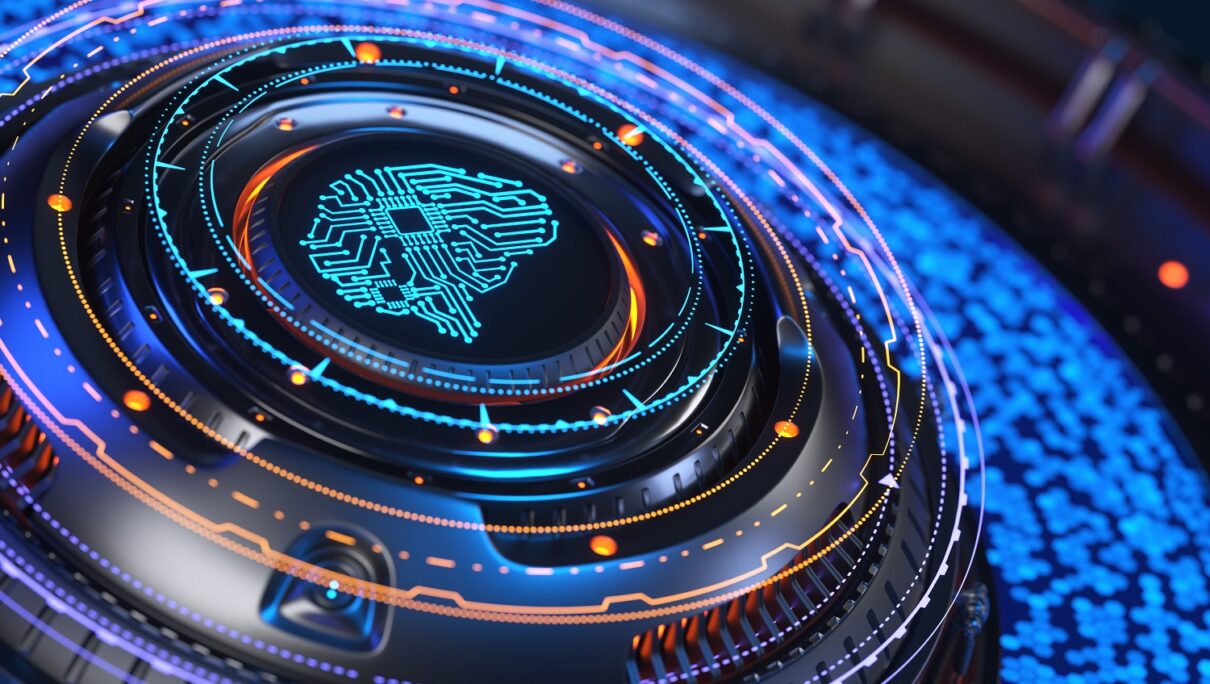Artificial Intelligence (AI) has been transforming various industries, and marketing is no exception. AI has emerged as a game-changer in digital marketing, revolutionizing how marketers approach their campaigns. With its ability to analyse vast amounts of data, predict consumer behaviour, and personalize the customer experience, AI has become an indispensable tool for marketers. In this article, we’ll explore the rise of AI in marketing, how it’s changing the game, and what it means for the future of the industry.
How AI is Changing the Marketing Game
AI is changing the marketing game in several ways. One of the most significant changes is that it allows marketers to analyse vast amounts of data in real-time. This data can be used to understand consumer behaviour, identify patterns, and make informed decisions based on the data. This analysis can help marketers to personalize their campaigns and create targeted content that resonates with their audience.
Another way AI is changing the marketing game is by making it possible to automate repetitive tasks. For example, AI-powered chatbots can handle customer inquiries and provide 24/7 support, freeing up human resources to focus on more complex tasks. AI can also be used to automate the content creation process, allowing marketers to create personalized content at scale.
Finally, AI is changing the marketing game by enabling marketers to predict consumer behaviour. By analysing data from past campaigns and social media interactions, AI algorithms can predict what consumers are likely to do next. This allows marketers to tailor their campaigns to specific audiences and make informed decisions about where to invest their resources.
Benefits of Using AI in Marketing
There are several benefits to using AI in marketing. One of the most significant benefits is that it can help marketers to streamline their workflows and improve efficiency. By automating repetitive tasks, AI frees up human resources to focus on more complex tasks that require creativity and critical thinking.
Another benefit of using AI in marketing is that it can help marketers to personalize the customer experience. By analysing data from multiple sources, including social media interactions and past purchases, AI algorithms can create a detailed profile of each customer. This allows marketers to tailor their campaigns to specific audiences and provide personalized content that resonates with their customers.
AI can also help marketers to optimize their campaigns by providing real-time feedback on how their campaigns are performing. By analysing data from multiple sources, including social media interactions, website traffic, and email open rates, AI algorithms can identify areas of improvement and provide recommendations on how to optimize campaigns for better results.
Real-Life Examples of AI in Marketing
There are numerous real-life examples of AI in marketing. One of the most common uses of AI in marketing is in the form of chatbots. AI-powered chatbots can handle customer inquiries and provide support, freeing up human resources to focus on more complex tasks.
Another real-life example of AI in marketing is in the form of predictive analytics. By analysing data from past campaigns and social media interactions, AI algorithms can predict what consumers are likely to do next. This allows marketers to tailor their campaigns to specific audiences and make informed decisions about where to invest their resources.
AI is also being used in content creation and personalization. For example, AI algorithms can analyse data from multiple sources, including social media interactions and past purchases, to create personalized content that resonates with customers.
The Role of AI in Customer Segmentation and Targeting
One of the most significant roles of AI in marketing is in customer segmentation and targeting. By analysing data from multiple sources, including social media interactions and past purchases, AI algorithms can create a detailed profile of each customer. This allows marketers to tailor their campaigns to specific audiences and provide personalized content that resonates with their customers.
AI can also be used to segment customers based on their behaviour. For example, AI algorithms can analyse website traffic and social media interactions to identify customers who are more likely to make a purchase. This allows marketers to target these customers with personalized content and offers.
Another way AI is used in customer segmentation and targeting is through lookalike modelling. By analysing data from past campaigns and social media interactions, AI algorithms can identify customers who are similar to existing customers. This allows marketers to target these customers with personalized content and offers.
AI-Powered Content Creation and Personalization
AI is transforming content creation and personalization. By analysing data from multiple sources, including social media interactions and past purchases, AI algorithms can create personalized content that resonates with customers. This allows marketers to create content at scale that is tailored to specific audiences.
AI can also be used to optimize content for search engines. By analysing data from search engines and social media interactions, AI algorithms can identify keywords and topics that are popular with customers. This allows marketers to create content that is optimized for search engines and resonates with customers.
Finally, AI can be used to create content that is tailored to specific channels. For example, AI algorithms can analyse data from social media interactions and website traffic to create content that is optimized for specific social media platforms.
AI-Powered Chatbots and Customer Service
AI-powered chatbots are changing the game in customer service. By handling customer inquiries and providing support, AI-powered chatbots are freeing up human resources to focus on more complex tasks. Chatbots can be programmed to handle a wide range of inquiries, including product inquiries, shipping inquiries, and support requests.
Chatbots can also be used to personalize the customer experience. By analysing data from multiple sources, including social media interactions and past purchases, chatbots can provide personalized recommendations and offers to customers.
Finally, chatbots can be used to improve customer satisfaction. By providing 24/7 support, chatbots can ensure that customers receive timely and accurate support whenever they need it.
The Ethical Considerations of Using AI in Marketing
As AI becomes more prevalent in marketing, there are ethical considerations that must be taken into account. One of the most significant ethical considerations is privacy. AI algorithms collect vast amounts of data about customers, and it’s essential to ensure that this data is used ethically and responsibly.
Another ethical consideration is transparency. It’s essential to ensure that customers are aware of how their data is being used and have the ability to opt-out of data collection if they choose.
Finally, there is a concern that AI-powered marketing could lead to job loss. As AI automates more tasks, it’s essential to ensure that human resources are trained to work with AI and can adapt to the changing landscape of marketing.
Best AI Marketing Tools in the Market
There are several AI marketing tools in the market that can help marketers to automate tasks, personalize content, and optimize campaigns. Some of the best AI marketing tools in the market include:
HubSpot: HubSpot is a marketing automation platform that uses AI to personalize content, automate tasks, and optimize campaigns.
Marketo: Marketo is a marketing automation platform that uses AI to personalize content, automate tasks, and optimize campaigns.
Salesforce: Salesforce is a customer relationship management platform that uses AI to personalize content, automate tasks, and optimize campaigns.
Hootsuite: Hootsuite is a social media management platform that uses AI to analyse social media interactions and optimize content for specific channels.
Future of AI in Marketing
The future of AI in marketing is bright. AI is expected to continue to revolutionize how marketers approach their campaigns, making them more effective, efficient, and targeted. Some of the trends that we can expect to see in the future of AI in marketing include:
Increased personalization: AI will continue to be used to create personalized content that resonates with customers.
Greater automation: AI will continue to automate repetitive tasks, freeing up human resources to focus on more complex tasks.
Enhanced targeting: AI will continue to be used to target specific audiences with personalized content and offers.
Improved analytics: AI will continue to be used to analyze vast amounts of data in real-time, providing marketers with real-time feedback on how their campaigns are performing.
Conclusion
AI is changing the game in marketing. From chatbots to predictive analytics, AI is transforming how marketers approach their campaigns, making them more effective, efficient, and targeted. The rise of AI in marketing is here to stay, and it’s essential for marketers to understand its impact on the industry. By embracing AI, marketers can streamline their workflows, personalize the customer experience, and optimize their campaigns for better results. The future of AI in marketing is bright, and it’s an exciting time to be a marketer.





